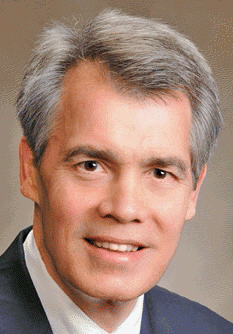President Obama has made an astonishing discovery: We’re not producing enough primary care doctors, he recently told Congress. Although this may be news to the president’s minions, physician groups, legislators, insurers, and patients are all well aware of the dearth of generalists. Just ask anyone whose GP has retired how long it takes to find a willing and skilled replacement.
Explore This Issue
September 2009With as much opposition to increasing the pool of primary care physicians as there is to motherhood and apple pie, the devil is in the monetary details of how to incentivize all varieties of doctors to stay in the game. On the heels of President Obama’s $787 billion stimulus bill and a federal budget-busting $1.75 trillion deficit, significant financial incentives to lure medical students into generalist careers, and higher reimbursement to keep generalists in practice, are hard for Congress to justify. Nevertheless, Senate Finance Committee Chairman Max Baucus (D-MT) said that because Medicare payments were skewed against primary care doctors, he will push for an immediate 5% increase in Medicare reimbursement for office visits and other primary care services, without saying exactly where the money’s going to come from.
Joseph Stubbs, MD, an internist and 2009-2010 president of the American College of Physicians (ACP), argued that the compensation gap between primary care doctors and specialists is significant and that, by the end of five years, generalists should be paid 80 to 85 percent of what specialists earn. He said, Something’s got to be done, because we face an imminent critical shortage of PCPs [primary care physicians], but we don’t want to take anything away from specialists. That’s the tricky part. Can anyone figure out how to pay generalists more without paying specialists less? Budget neutrality is the issue here. In essence, budget neutrality robs Peter (the specialists) to pay Paul (the PCPs). The Medicare Payment Advisory Commission has recommended budget neutrality with an increase of up to 10% for PCP services, suggesting that Congress pay for it by reducing payments to specialists.
 Something’s got to be done, because we face an imminent critical shortage of PCPs, but we don’t want to take anything away from specialists.
Something’s got to be done, because we face an imminent critical shortage of PCPs, but we don’t want to take anything away from specialists.-Joseph Stubbs, MD
Dr. Stubbs pointed out that the alternative to chopping specialists’ pay may lie in practicing more efficient and effective medicine. The ACP strongly backs the Patient-Centered Medical Home (PCMH) model, currently being tested in national pilot projects, in which primary care practices are reimbursed for care coordination and referrals to specialists, and have strong incentives to implement electronic health records. The desired outcome is medicine’s holy grail-better outcomes and lower costs. Although the PCMH pilots just rolled out this year, Dr. Stubbs admitted that Centers for Medicare and Medicaid Services funding of more than 100 other demonstration projects with similar goals in the past few years has not uncovered many models (Geisinger Health System excepted) that both improve care and reduce costs. Yet he is hopeful that the PCMH model will do both.
Leave a Reply